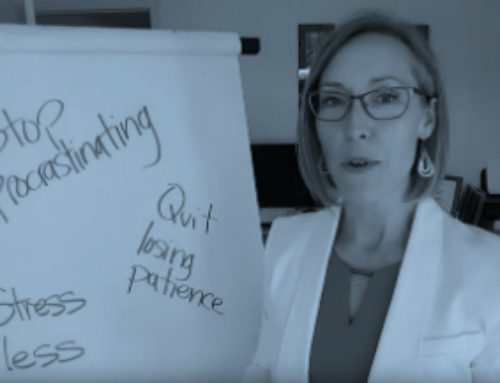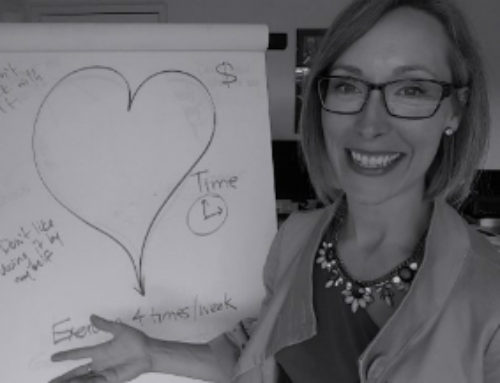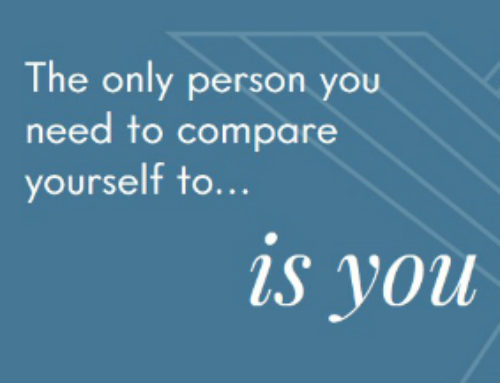Many of us set goals, intentions and resolutions to create more work-life balance but then unintentionally fall short of them. To set work-life balance goals you’ll actually achieve and keep doing, read on.
If you’re like many people, you have great intentions to create more balance. You probably even NEED more balance in your life.
Despite your best intentions, if you’re human, you likely don’t always maintain it.
Figure out why achieving better work-life balance is important to you
Ask yourself why having more work-life balance is important to you. Motivation skyrockets when you connect to what’s most important about achieving your goals. The deeper you connect with this reason, the more motivated you will be to make your goal happen. In a nutshell, ask yourself why this goal is important to you five times, going deeper each time. It’s easy, and for more details and examples you can see the super-simple, step-by-step process to deeply connect to your why here.
You and I both know that we’ll get to a point where things are tough and we’ll want to quit. Keep these reasons handy for those times. When you know and remind yourself why you’re working so hard, it’s much easier to uptown that funk.
Get clear on what better work-life balance means for you
How will you know if you have more work-life balance? First figure out the areas you want more equilibrium. Some examples:
- More self-care like exercise, spa appointments, quiet bubble baths, healthy eating
- More time with the kids, friends, spouse
- More sleep
- Fewer commitments
- Less time working
Then define what success looks like and be as specific as possible. This will let you know when you have reached your goal. Because we need all the reasons we can get to celebrate our successes. Most people don’t celebrate as much as they could.
Then every week you can track your progress and celebrate your wins. More on that below.
Write your goals down
When I don’t write down my goals, I lose track of what I want to accomplish or get distracted by the here and now of the everyday bustle. I can also quickly forget that I’ve achieved a goal. I get going on my next goal without taking the time to fully appreciate my wins. This makes it feels like the finish line keeps receding into the distance and I can beat myself up because I’m “not there yet.”
So learn from my frustrations. When you write out your goals, you’ll know exactly what you want to do. You can check things off and see how you’re doing.
Research backs this up. Dr. Gail Matthews at Dominican University found that those who wrote down their goals significantly outperformed those who only thought about them. In fact, of those who thought about their goals, only 35% achieved them.
Get a partner
Even more startling, the research found that more than 70% of those who sent progress updates to a friend achieved their goals compared to 35% of those who kept their goals in their heads.
Find someone to share your goals and progress with, and send them weekly reports. It keeps you accountable. I can be lenient with my goals if it’s just me. “Go ahead. Skip the workout today. You’ve worked hard.” When I think about sharing that thought with a partner, it sounds like an excuse. Before I know it I’ve put the shoes on and I’m out the door.
Start small
Some of your work-life balance goals will be easy to start and maintain for long periods. Some will be difficult to integrate, at least at the beginning. For the difficult ones, start small. A difficult one for me was leaving work at a set time every day. I knew that I wouldn’t realistically be able to start do this every day right away. So I started small. I set a goal to leave at a certain time at least twice a week for a couple of weeks. I then upped that to leave at that time at least three times for three weeks. This allowed me to ease into it, build a routine and make it a habit, and get small wins along the way.
You could start even smaller than that. In his TEDx Talk, Dr. BJ Fogg of Stanford says start a habit like flossing your teeth by flossing one tooth. That’s it. One tooth. Then celebrate! Seriously. To exercise more, start with the goal to put on your shoes. That’s it. Put your shoes on. Goal achieved! Break out the bubbly! I’ve embedded that TEDx Talk below.
Keep going
I’ve read many different articles about what it takes to form a habit. The general adage that it takes 21 days to form a new habit is a myth. You can establish an easy habit in as few as a few days. Tougher ones will take much longer. It can take anywhere from 30, 45, 66 or more straight days to build a new habit. So keep going. Realize that you will have slumps where you feel like quitting. Review your reasons for why you’re doing it to recharge your motivation.
Celebrate your wins
For me, colouring in my chart is a celebration. I triumphantly grab my pencil crayons and feel pride and satisfaction filling in the squares. I also love celebrating with champagne. Choose something you really enjoy and do that
Here is that TEDx Talk by BJ Fogg.




